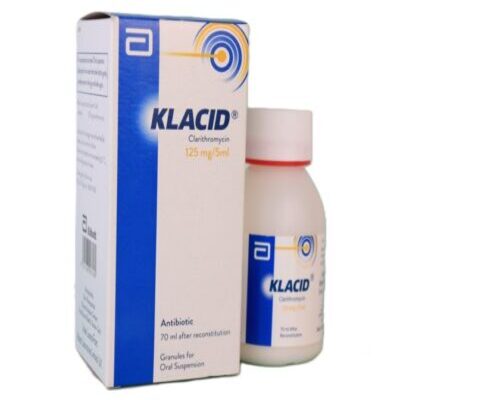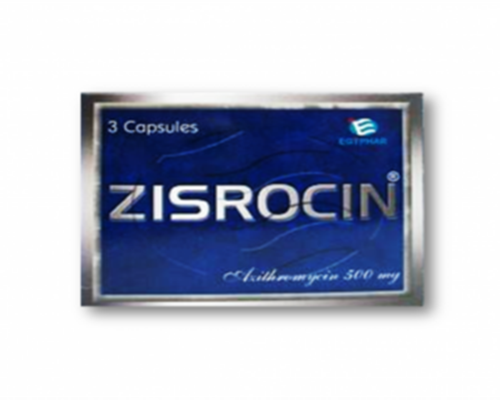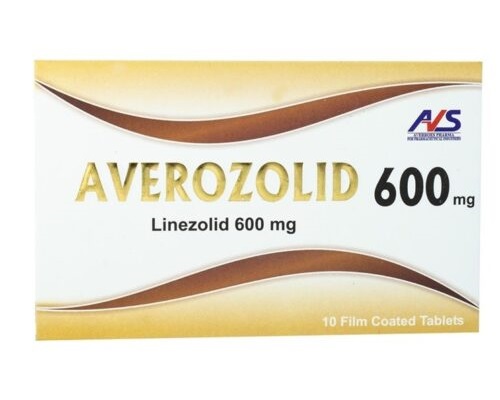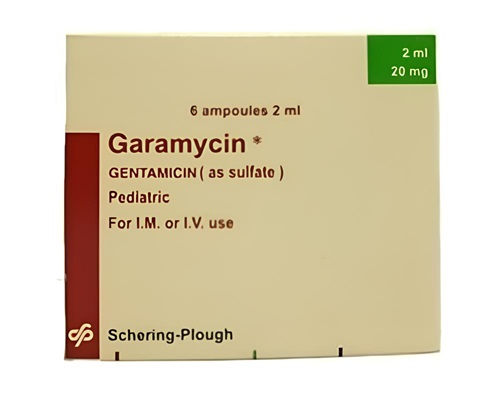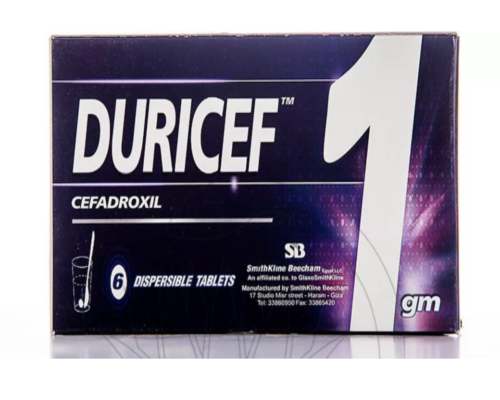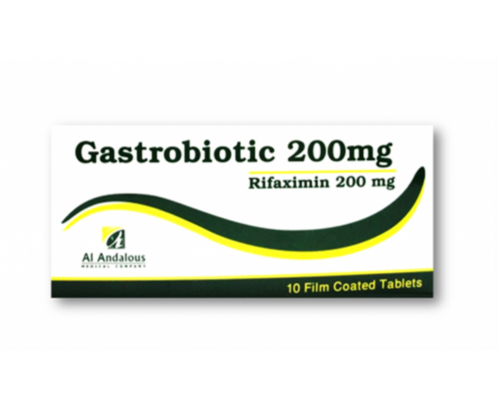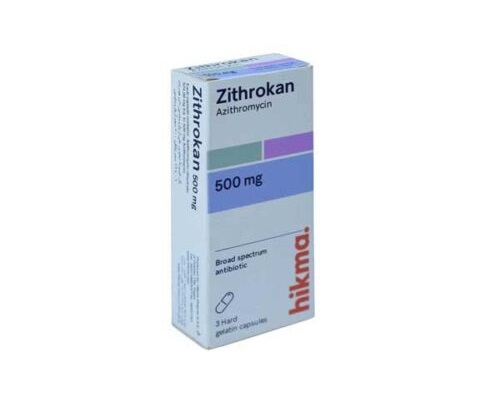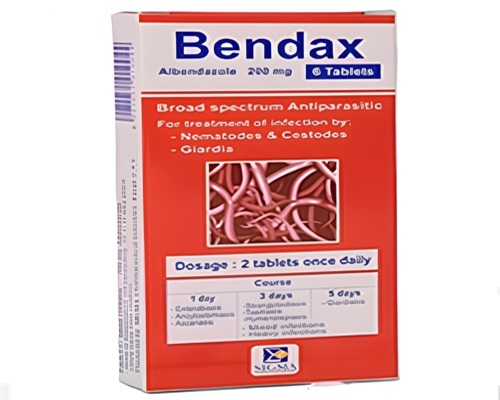Description
Trade name:
Klacid granules for oral suspension
Composition:
After dilution according to the instructions, every 5 ml of suspension contains 125 mg of clarithromycin.
Excipients:
Sucrose, carbamer, povidone K90, castor oil, xanthan gum, citric acid.
Properties:
Semi-synthetic antibiotic of the macrolide group. Has an antibacterial effect,
Shows high activity against many aerobic and anaerobic gram-positive and gram-negative microorganisms.
Indications:
Infectious and inflammatory diseases caused by microorganisms sensitive to clarithromycin:
Lower respiratory tract infections (such as bronchitis, pneumonia);
Upper respiratory tract infections (such as pharyngitis, sinusitis);
Skin and soft tissue infections (such as folliculitis, cellulitis, erysipelas);
Disseminated or localized mycobacterial infections caused by Mycobacterium avium and Mycobacterium intracellulare;
Localized infections caused by Mycobacterium chelonae, Mycobacterium fortuitum and Mycobacterium kansasii;
Acute otitis media.
Method of administration and dosage:
For oral administration. The prepared suspension should be taken orally regardless of food intake (including with milk).
To obtain a suspension, gradually add water to the bottle up to the 70 ml mark and shake. The prepared suspension can be stored for 14 days at room temperature (from 15° to 30°C). Shake the suspension well before each use.
The recommended daily dose of clarithromycin suspension for non-mycobacterial infections in children is 7.5 mg/kg 2 times a day (maximum – 500 mg 2 times a day). The usual duration of treatment is 5-10 days, depending on the pathogen and the severity of the condition.
In children with disseminated or localized mycobacterial infections (Mycobacterium avium, Mycobacterium intracellulare, Mycobacterium chelonae, Mycobacterium fortuitum, Mycobacterium kansasii), the recommended daily dose of clarithromycin is 7.5-15 mg/kg 2 times a day and should not exceed the maximum dose of 500 mg 2 times a day.
Contraindications:
Concomitant administration of clarithromycin with the following drugs: astemizole, cisapride, pimozide,
Concomitant administration of clarithromycin with oral midazolam;
History of QT prolongation (congenital or acquired documented prolongation of the QT interval) or ventricular arrhythmia, including torsades de pointes;
Hypokalemia (risk of prolongation of the QT interval);
Severe liver failure occurring simultaneously with renal failure;
History of cholestatic jaundice/hepatitis developed during the use of clarithromycin;
Hereditary fructose intolerance, sucrase-isomaltase insufficiency, glucose-galactose malabsorption syndrome;
Porphyria;
hypersensitivity to clarithromycin, macrolides and other components of the drug.
Precautions:
Concomitant administration of clarithromycin with the following drugs: astemizole, cisapride, pimozide, terfenadine;
concomitant administration of clarithromycin with ergot alkaloids, such as ergotamine, dihydroergotamine;
concomitant administration of clarithromycin with oral midazolam;
concomitant administration of clarithromycin with HMG-CoA reductase inhibitors (statins), which are largely metabolized by the CYP3A4 isoenzyme (lovastatin or simvastatin), due to an increased risk of myopathy, including rhabdomyolysis;
concomitant administration of clarithromycin with colchicine;
concomitant use of clarithromycin with ticagrelor or ranolazine;
history of QT prolongation (congenital or acquired documented prolongation of the QT interval) or ventricular arrhythmia, including torsades de pointes;
hypokalemia (risk of prolongation of the QT interval);
severe liver failure occurring simultaneously with renal failure;
history of cholestatic jaundice/hepatitis developed during the use of clarithromycin;
congenital fructose intolerance, sucrase-isomaltase deficiency, glucose-galactose malabsorption syndrome;
porphyria;
breast-feeding period;
hypersensitivity to clarithromycin, macrolides and other components of the drug.
Side effects:
Allergic reactions of varying severity, headache, insomnia, increased sweating, muscle spasms, diarrhea, vomiting
Storage method:
Store at a temperature not exceeding 30 degrees.
Packaging:
The cardboard box contains a 70 ml glass bottle, paper instructions

